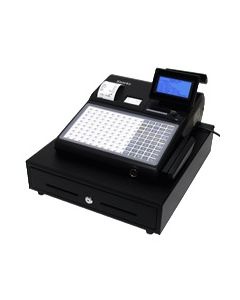In the fast-paced world of retail and small business, the cash register stands as the heart of daily operations. It's not just a point of sale; it's a hub of customer interaction, transaction processing, and inventory management. Yet, despite its central role, cash register operations can often become a bottleneck, plagued by inefficiencies and inaccuracies that undermine the business's overall performance. This post dives into the importance of optimizing these operations and outlines practical strategies to help retail managers, small business owners, and cashiers enhance both efficiency and accuracy.
The Importance of Efficient and Accurate Cash Register Operations
Efficient and accurate cash register operations are crucial for several reasons. Firstly, they ensure a smooth and speedy checkout process, which enhances customer satisfaction and loyalty. In today's retail environment, where competition is fierce, providing a positive shopping experience is key to retaining customers. Secondly, accuracy in transactions directly impacts the financial health of the business, minimizing losses due to errors and discrepancies. Finally, streamlined operations at the cash register can significantly improve inventory management, providing real-time insights into stock levels and sales trends.
Common Challenges in Cash Register Operations
Retail managers and cashiers face numerous challenges in maintaining optimal cash register operations. Transaction errors, such as incorrect change or miscounted items, are common and can lead to financial discrepancies. Inventory management issues, including mismatches between physical stock and sales records, complicate restocking and ordering processes. Furthermore, inefficiencies in the checkout process, such as slow transaction times and cumbersome payment methods, can frustrate customers and staff alike.
Strategies for Optimizing Cash Register Operations
Selecting the Right POS System
The foundation of efficient cash register operations is a robust Point of Sale (POS) system. Modern POS systems offer more than just transaction processing; they integrate inventory management, customer relationship management (CRM), and analytics into a single platform. When selecting a POS system, consider features such as ease of use, compatibility with existing hardware, and the ability to scale with your business.
Training Staff
Well-trained staff are essential for minimizing errors and maximizing efficiency. Comprehensive training programs should cover not only the technical aspects of operating the cash register and POS system but also customer service skills and procedures for handling common issues.
Implementing Efficient Checkout Processes
Streamlining the checkout process can significantly reduce wait times and improve the customer experience. Strategies include organizing the checkout area for quick access to commonly purchased items and tools, encouraging the use of contactless payments, and establishing clear procedures for handling returns and exchanges. Additionally, self-checkout stations can offer customers a quicker option while freeing up staff to focus on other tasks.
Using Technology for Accuracy and Speed
Technology plays a key role in enhancing the accuracy and speed of cash register operations. Barcode scanners reduce errors in item entry and speed up the checkout process. Integrated payment systems minimize the risk of cash handling errors and support a wider range of payment options. Meanwhile, inventory management tools linked to the POS system can automatically update stock levels, alerting you to low inventory and simplifying the ordering process.
Conclusion
Optimizing cash register operations is essential for the success of retail and small business operations. By selecting the right POS system, training staff effectively, implementing efficient checkout processes, and leveraging technology, businesses can enhance both efficiency and accuracy at the point of sale. These improvements not only benefit the bottom line but also contribute to a positive shopping experience, encouraging customer loyalty and repeat business.


No comments yet